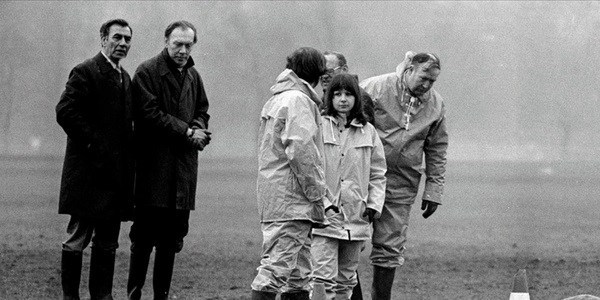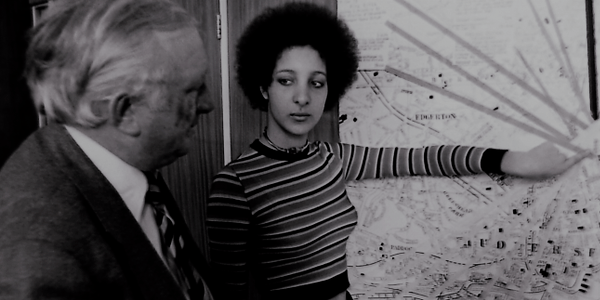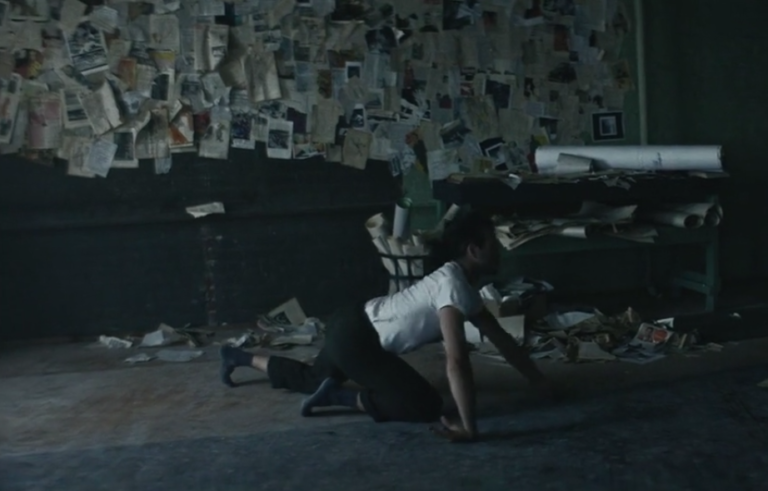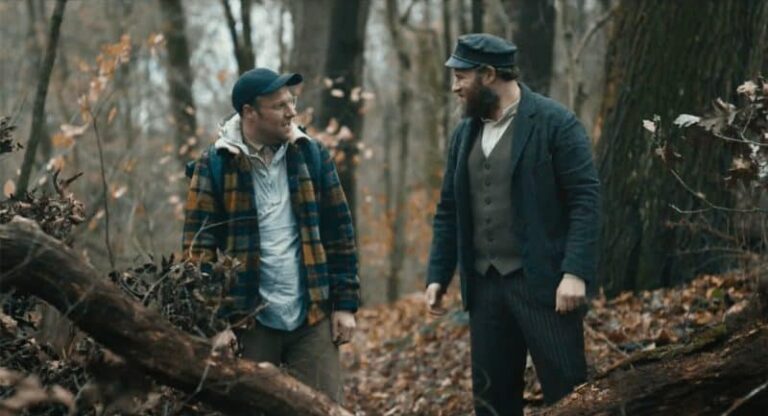The Ripper: Come for The Investigation, Stay for Commentary
It is delightful to be gifted a bonus, right? That’s how I felt after finishing The Ripper, a new true-crime Netflix documentary series. The Ripper is much more than just the investigation, the strategies, the statistics, the news-footage, the court trials, etc. It is a portrait of a menial police system and their failed attempts at nabbing a serial killer who wreaked havoc in Yorkshire, England in the second half of the 1970s. Proclaimed the Ripper by the media and police, derived from serial killer Jack the Ripper, the reincarnated murderer kills only women, and autopsy reports show that he kills them bit by bit, taking pleasure in the act.

The initial pattern indicates that he preys on sex workers from Yorkshire’s Chapeltown area, which is known for prostitution, and the filmmakers zero in on this as the primary point right from the very first time the killer strikes with the murder of a sex worker named Wilma McCann. Absolutely clueless police officers try their best to decode the case but are brought down due to their gaze towards victims, whom they deem to live a low-life. The number of victims continues to rise, tensions mount, efforts proliferate, yet the police are far from reaching a tiny clue.
Going Beyond Genre Toppings
When you sign up for an investigative true-crime documentary that’s riddled with details of gruesome deaths and a dangerous killer on the run, you expect twists, tautness, and an anxiety-inducing narrative. The Ripper has all of that and much more. It is witheringly scornful documentation of the failure of a system ascribed to a multitude of shortcomings, with conservative morals being the foremost of the lot. The irony, though, is that it took a serial killer to exhibit the misogyny and in turn, it only helped him.

Akin to the other Netflix titles such as Conversations with a Killer: The Ted Bundy Tapes and The Confession Killer, this one is also a masterclass in how editing shapes story-telling in a documentary, especially when the story spans years and is told through multiple perspectives. The timelines and personal experiences are seamlessly blended with the news footage, making the narrative flow like a river. The four-part series spends a major part of the first half expounding and documenting the time period it is set in and it prepares us that it’s going to be a long way to besiege the killer. Owing to my unawareness pertaining to the subject matter and Ted Bundy Tapes being fresh in my memory, I presumed the series to take the court-trial route, but The Ripper operates in a man-hunt mode for more than a three-quarter part of it, and the latter half is bound to make one restless as the efforts of the police go down like a lead balloon time after time. That’s also what the filmmakers intended.
Divulging Social Peripheries
However, commentary ensues from this very restive nature of the documentary or, perhaps, the fallibility of men at work. At a point after having their efforts thwarted for years, exhausting a million pounds, and puncturing our hopes, the head of the Yorkshire police requests the Ripper to surrender. While we were suspecting their efficiency from the word go, this moment confirms their inefficiency, and we realize that the series’ prime focus might not be how the investigation panned out (written materials are available in the public domain), but to shed light on their ineptness. To answer whether the ripper consented to the police’s request, I can assure you that he is anything but submissive, the working of the police system feels anything but autotelic, and the series is anything but humdrum.

The series touches on a myriad of facets that girdled this phenomenon. Women are asked to not roam alone in the dark; misogyny is questioned. The death of sex workers is ignored; social strata is divulged. Children of the murdered women speak; their identity and personality beyond the ‘prostitute’ tag are brought forward. In a way, the documentary puts things into perspective, something that the media didn’t quite achieve back in the day. A newspaper calls Wilma McCann ‘good time girl’; that should suffice the amount of cleansing Jesse Vile and Ellena Wood do with their documentary.
The Ripper: Conclusion
The Ripper – the eponymous killer and the series – exposes the misogyny with aplomb at every step and moreover, it is persistently captivating as a crime-story, riveting in its investigative mode, and stimulating in its commentary mode. It is everything true-crime fans ask for.
What did you think of The Ripper? Please let us know in the comments below!
Watch The Ripper
Does content like this matter to you?
Become a Member and support film journalism. Unlock access to all of Film Inquiry`s great articles. Join a community of like-minded readers who are passionate about cinema – get access to our private members Network, give back to independent filmmakers, and more.
Join now!





